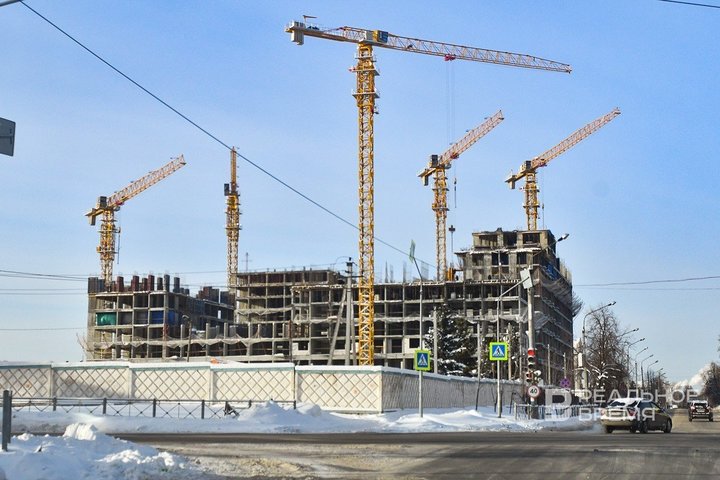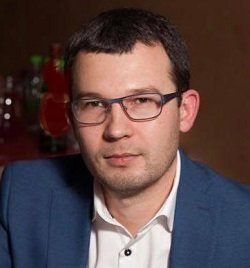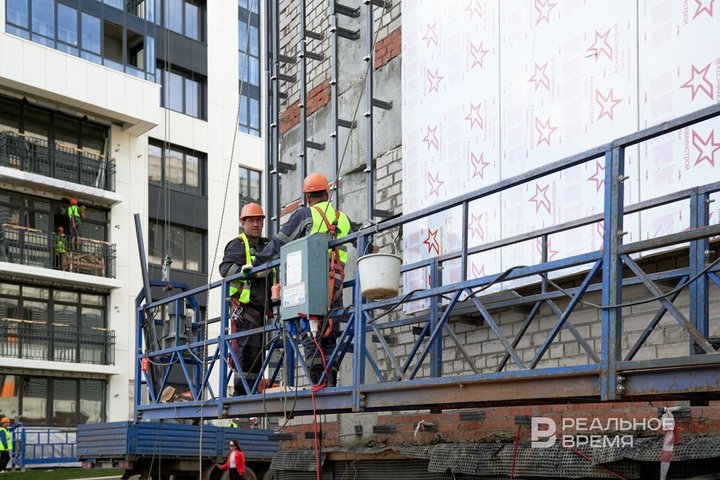Russian developers propose saving for a house with the help of the state
If the state programme of home savings certificates or construction savings banks will work in Tatarstan

Russian developers have come up with an initiative that, according to the plan, should save all participants in the housing market: both the construction industry, which is “stocking up” against the backdrop of falling sales and those who need to solve the housing issue but cannot afford it in the context of unaffordable market mortgages. According to developers, the problem can be solved by adopting a state programme of home savings certificates. Read about the proposed new scheme for saving up a down payment for a mortgage, its viability and alternatives in a report of Realnoe Vremya.
Will the state help everyone?
Russian developers have proposed that the state support the construction industry, which has begun to sag in the context of slowing sales and rising mortgage rates. The authors of the initiative believe that in a situation where families in need of housing can neither save up enough for a down payment nor take out a mortgage loan at exorbitant interest rates, the solution to the problem could be a state programme of housing savings certificates.
At the same time, no one is suggesting looking for ways to reduce the cost of a mortgage and the housing itself. The whole calculation is that with the help of the state, citizens will earn the missing amounts on relatively safe investments.

It is assumed that the money of the programme participants will be deposited into a special bank account and transferred to the management of the state, which will invest it in federal loan bonds or other low-risk securities guaranteed by the Russian government, and over the course of several years, the participants will accumulate a sum sufficient for the initial payment on a mortgage. According to the authors of the idea, the surcharge from the state in this case could be up to 30% per annum, and the programme participants who have thus saved up for the initial payment will be able to buy housing with a mortgage at a preferential rate.
“Today it is affordable for most buyers,” Azizov believes. “Only 1% of our clients use standard programmes with a market rate of 25%, and 51% use family mortgages.
DOM.RF: “Risks of a decline in new project launches are growing”
Developers' concerns are justified: according to the latest forecasts published by DOM.RF, in the third quarter of 2024, mortgage issuance decreased by 36% compared to the second quarter in quantitative terms and by 39% in monetary terms. Mortgage lending under preferential programmes also slowed down due to modifications to their terms, in particular due to an increase in the down payment: 2.5 times fewer preferential mortgage loans were issued than in the second quarter. According to the forecast of DOM.RF, mortgage lending will remain at a low level until the end of the year, and in the first half of 2025, mortgage issuance will decrease by a third compared to the record level of 2023.
At the same time, developers have not slowed down the pace of launching new projects, and the portfolio of housing under construction in Russia reached its maximum level in the last five years — 117.8 million sq. m as of October 1, 2024 (with an increase of 3% in the third quarter and 11% since the beginning of the year), DOM.RF reports. But sales of new buildings after the end of the Preferential Mortgage programme fell by 20% compared to the average level for the first half of the year, and the share of mortgage transactions fell to 72% (by 28% per quarter).
“High sales of buildings under construction with delivery in 2025 allows developers to complete construction without postponing the deadlines,” believes DOM.RF. “However, in the context of high rates and low demand in 2025, the risks of a decrease in the launch of new projects in 2025-2026 and the delivery of housing after 2027 are growing.”
“We must look for options”
The proposal for a state programme of housing savings certificates needs to be studied in detail, believes State Duma deputy, member of the Duma’s Committee on Budget and Taxes Ayrat Farrakhov.

Ayrat Farrakhov added that the authors of the bill on construction savings banks approached Vyacheslav Volodin with a proposal to create a taskfirce so that it could be finalised and adopted.
“It is difficult to assess the effectiveness today”

The developer explained to Realnoe Vremya that the proposal to introduce housing savings banks looks good, but, he added, in addition to the idea, at least preliminary calculations are needed. His company's readiness to participate in such a project depends on how close the economy of housing savings certificates will be to its financial models:
“There are still many unknowns and it is difficult to correlate anything. It often happens that a brilliant idea dies at the level of two or three manipulations with a calculator. It is no secret that low-risk securities are far from the most marginal, so when the key rate stabilizes, the accumulation dynamics will most likely be comparable to basic bank deposits. It is difficult to assess the effectiveness today, there are many questions, including the participation of a certain preferential mortgage rate. How and at whose expense will it be guaranteed?
“People are not ready to give money to the state”

Safin emphasised that he judges by his clients who want to buy housing “here and now.” They either save up for the flat they need on their own, or buy some kind of liquid intermediate real estate option, which they will then resell in order to buy the one they need:
“At the same time, the money remains with them, but they are not ready to give it to the state in the hope that something will happen in the future.”

The expert also admits that potential programme participants will prefer not to invest in housing and communal services on unclear terms and with unclear prospects, but to wait until the Central Bank's forecasts come true, promising a fall in the key rate in 2027:
“If the government says that everything will be fine in three years, why invest anywhere? That is, in principle, if the rate on the secondary market returns to, say, 13%, people will rush to buy with joy, 13 will suit everyone. And certificates with long-term horizontal planning will not be interesting to them.”
“Why can't you lower the price?”
According to Rustem Safin, a scenario similar to the proposed housing and utility services scenario could have worked, but only in Soviet times, when there was a shortage of real estate. And now, when supply significantly exceeds demand, he says, the client wants and has the right to choose housing, square footage, district, etc. Now this tool seems ineffective to him, especially when the pension reform with the funded pension, which was promised and then frozen, is fresh in the memory.

Safin also expressed bewilderment about attempts to use the state where everything can be solved with market instruments. He recalled that, for example, in Moscow, developers are already offering instalments for the purchase of housing in completed buildings, while in Kazan — only until the building is completed:
“They provide instalments at the expense of their margin — well done! That is, if you need to sell, offer, compete! But offering tools like the Housing Tax is wrong now. You need to start with yourself and understand why you can't lower the price?”